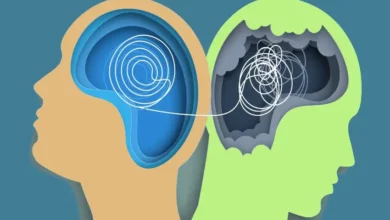Health Benefits of Fasting – Types and How to Get Started

Health benefits of fasting types and how to get started. Fasting has become an increasingly popular practice, with many people turning to it as a means to improve overall health. From weight management to enhancing brain function, fasting offers a variety of potential benefits. This voluntary act of abstaining from food or drink for a set period can profoundly impact the body in ways that go beyond simple calorie restriction. In this article, we’ll delve into the many health benefits of fasting and explore the different types of fasting practices.
Health Benefits of Fasting, Types and How to Get Started
Fasting isn’t just a trend; it’s a practice that comes with a wealth of health benefits, particularly when done in moderation and with careful attention to personal needs. Here are some of the key benefits:
1. Weight Loss and Metabolic Health
One of the most well-known benefits of fasting is its ability to aid in weight loss. By reducing overall calorie intake, fasting encourages the body to burn stored fat for energy. Beyond weight loss, fasting may also improve metabolic health by enhancing insulin sensitivity. This leads to more stable blood sugar levels and a reduced risk of developing type 2 diabetes. Several studies have shown that intermittent fasting can be particularly effective in promoting fat loss without the need for extreme dietary changes.
2. Cellular Repair and Longevity
Fasting also triggers a process known as autophagy, where the body removes damaged or dysfunctional cells and replaces them with new, healthy ones. This process is essential for cellular repair and overall health. Interestingly, some studies have suggested that fasting could even contribute to a longer lifespan. While more research is needed, these early findings are promising and point to fasting as a powerful tool for supporting healthy aging.
3. Heart Health
Fasting may be a key player in supporting cardiovascular health. Research indicates that it can help lower cholesterol levels, reduce blood pressure, and decrease triglycerides. These changes work together to reduce the risk of heart disease and stroke. Given that heart disease remains one of the leading causes of death worldwide, these potential benefits are significant.
4. Improved Brain Function
Another exciting benefit of fasting is its effect on the brain. Fasting has been shown to increase the production of brain-derived neurotrophic factor (BDNF), a protein that plays a critical role in brain health. Elevated BDNF levels may improve memory, and cognitive function, and even support the brain’s ability to recover from injury. Furthermore, fasting may reduce the risk of neurodegenerative diseases such as Alzheimer’s and Parkinson’s, making it a promising tool for preserving brain health over time.
5. Reduced Inflammation
Chronic inflammation is linked to a variety of health conditions, including arthritis, asthma, and even heart disease. Fortunately, fasting has been shown to reduce inflammation markers in the body. By lowering inflammation, fasting can help alleviate symptoms associated with inflammatory conditions and promote overall well-being. For people struggling with chronic conditions, this anti-inflammatory effect can provide much-needed relief.
Search for health tips: Medical Malpractice Attorney and Is Bronchitis Contagious.
Types of Fasting
There are several different fasting methods, each with its approach and benefits. Let’s take a look at the most popular types:
1. Intermittent Fasting (IF)
Intermittent fasting has gained widespread popularity due to its simplicity and effectiveness. It involves alternating periods of eating and fasting. One of the most common methods is the 16:8 approach, where you fast for 16 hours and eat during an 8-hour window. This type of fasting is flexible and can be adjusted to fit individual schedules, making it a practical choice for many people looking to reap the benefits of fasting without extreme deprivation.
2. Time-Restricted Eating
Time-restricted eating is similar to intermittent fasting but generally involves a more limited eating window. For example, some people choose to eat within 12 hours, allowing for longer periods of fasting. This method is often easier to incorporate into daily life and is ideal for beginners who are new to fasting.
3. Extended Fasting
Extended fasting refers to fasting for 24 hours or more, typically done once or twice a week. During an extended fast, you abstain from food (and sometimes even liquids) for an extended period, allowing the body to enter deeper stages of autophagy. This type of fasting can be more challenging but may offer more pronounced health benefits for those who are experienced with fasting.
4. Alternate-Day Fasting
As the name suggests, alternate-day fasting involves alternating between fasting days and eating days. On fasting days, you consume little to no calories, while on eating days, you resume normal eating habits. This approach can be an effective way to achieve weight loss and improve metabolic health, but it requires careful attention to ensure that your body receives proper nutrition on non-fasting days.
5. Water Fasting
Water fasting involves abstaining from all foods and beverages except water for a set period. It is often used for detoxification purposes or as a way to kick-start a fasting regimen. While it can be beneficial, water fasting should only be undertaken with caution and under medical supervision, especially for extended periods.
Precautions and Considerations
While fasting can offer numerous health benefits, it is not suitable for everyone. Before starting any fasting regimen, it’s important to consult with a doctor, particularly if you have any existing medical conditions like diabetes, eating disorders, or heart problems. Here are a few additional precautions to keep in mind:
- Stay Hydrated: During fasting periods, it’s crucial to drink plenty of water to stay hydrated and avoid dehydration. Hydration is essential for maintaining energy levels and supporting the body’s detoxification processes.
- Start Gradually: If you’re new to fasting, it’s best to ease into it gradually. Start with shorter fasting periods and work your way up to longer ones as your body adapts. This can help you avoid adverse effects such as fatigue, dizziness, or irritability.
- Listen to Your Body: Fasting should never feel overly stressful or harmful. Pay attention to how your body responds, and if you experience significant discomfort or negative side effects, it may be best to adjust your fasting schedule or consult a healthcare provider.
Conclusion
Fasting offers a wide range of health benefits, from weight loss and improved metabolic health to enhanced brain function and heart health. Whether you choose intermittent fasting, extended fasting, or any of the other types of fasting, each approach can contribute to better overall health when practiced mindfully. However, it’s important to remember that fasting isn’t for everyone.
Consulting with a healthcare professional, staying hydrated, and listening to your body are essential steps to ensure that fasting is done safely and effectively. By understanding the different types of fasting and their benefits, you can make an informed decision about whether fasting is right for you on your health journey. For more health tips visit our website Media Music Mania.
FAQs
1. What is fasting?
Fasting is the voluntary abstention from food or drink for a specific period.
2. What are the health benefits of fasting?
Fasting offers a range of health benefits, including:
- Weight Loss: Reducing calorie intake leads to weight loss.
- Metabolic Health: It can improve insulin sensitivity and help stabilize blood sugar levels.
- Cellular Repair: Fasting triggers autophagy, where the body repairs damaged cells and regenerates healthy ones.
- Heart Health: Fasting may lower cholesterol, blood pressure, and triglycerides, benefiting cardiovascular health.
- Brain Function: Fasting increases brain-derived neurotrophic factor (BDNF), supporting cognitive function and reducing the risk of neurodegenerative diseases.
- Reduced Inflammation: It can lower inflammation markers, aiding conditions like arthritis and asthma.
3. How does fasting promote weight loss?
Fasting helps by reducing your overall calorie intake, which can lead to weight loss. During fasting periods, your body starts using stored fat as energy, thus promoting fat loss.
4. How does fasting affect brain health?
Fasting increases the production of BDNF (brain-derived neurotrophic factor), a protein that supports brain health. Elevated BDNF levels can improve memory, learning, and cognitive function.
5. What are the different types of fasting?
There are several popular types of fasting:
- Intermittent Fasting (IF): Alternating between fasting and eating periods (e.g., 16:8 method: 16 hours of fasting and 8 hours of eating).
- Time-Restricted Eating: Eating only within a specific time frame each day, typically 12 hours or less.
- Extended Fasting: Fasting for 24 hours or longer, usually done once or twice a week.
- Alternate-Day Fasting: Alternating between fasting and eating days.
- Water Fasting: Consuming only water during a fasting period, often used for detoxification.









